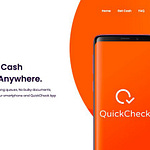Each week, I cover the “So what?” from 5 key crypto news stories in about 5 minutes. Let’s go!
Anchorage becomes first national digital asset bank. The crypto start-up was conditionally approved for a national bank charter by the OCC. This announcement further blurs the lines between traditional finance and cryptosphere. Anchorage provides a range of financial services to institutional investors in digital assets. This includes services and infrastructure that allows them to trade, custody, lend, borrow, and participate in other blockchain activities.
So what? This is a watershed moment for digital assets. Anchorage now has the technical sophistication and the regulatory clarity to offer and develop innovative solutions for institutions. This means that very large institutions, neobanks, large bulge bracket banks, and maybe smaller companies now have a partner with regulatory charter and guidance on digital asset custody, stablecoin issuance, and other businesses within crypto.
Brian Brooks steps down from the OCC. The crypto friendly acting head of the OCC has stepped down to make room for President-elect Biden to nominate a candidate. Brooks’ tenure was relatively short but transformational. Under his leadership, the OCC issued a slew of guidelines and clarifications that have propelled cryptosphere forward culminating in Anchorage securing the first national bank charter as a crypto company.
So what? There have been calls from some Congressional Democrats for the next head of the OCC to reverse the recent crypto-related guidance. It remains to be seen what posture the Biden administration will take towards digital currencies. Regulatory clarity, consistency and support are key to driving innovation and growth in this sector. The industry is keenly watching to see who will succeed Brooks. Nominations are for a 5-year-term.
Goldman Sachs to custody crypto: Goldman Sachs reportedly issued a Request For Information (RFI) in late 2020 for digital currency custodial services. The RFI is the first step in evaluating technology solutions to enable its customers to buy, sell, and hold cryptocurrencies and stablecoins. JP Morgan and Citibank also reportedly issued RFIs in 2020 too.
So what? In 2020, the OCC clarified that banks can hold digital currencies. Neobanks like Revolut and SoFi already enable their customers to buy, sell, and hold bitcoin, ether, and litecoin. PayPal drove adoption when it enabled users to buy and sell cryptocurrencies in October. It’s only a matter of time before a traditional bank does so too. Others will follow assuming the regulatory environment continues to be supportive.
Gemini eyes IPO, launches rewards card: The Winklevoss twins’ Gemini crypto exchange are reportedly considering an IPO hot on the hells of Coinbase. They will also explore alternate options to take the company public such as a SPAC. Gemini also recently announced that it is launching a 3% bitcoin rewards credit card. BlockFi was the first to announce a bitcoin rewards credit card.
So what? 2021 could shape up to be the year crypto went public. Gemini would be another multi-billion dollar IPO adding further credibility to the industry. Coinbase and Gemini were founded in 2012 and 2014 respectively.
Lost Bitcoin worth millions: This week 2 stories emerged of early bitcoin investors each unable to access $200-300M worth of bitcoin. The first was a Welsh engineer who mistakenly threw away a hard drive with 7,500 bitcoin purchased in 2013. He has offered the local council 25% of the windfall if he is allowed to search the landfill. The second story was a tech executive who stored some of his bitcoin on an ultra-secure drive that only permits 10 incorrect password guesses before it blocks access forever. He is unable to recall the password and only has 2 guesses left.
So what? These nightmare stories horrify a number of bitcoin holders and would-be investors. Bitcoin keys are like a physical asset. If you lose them, it’s over. The New York Times estimates that 20% of all wallets holding bitcoin are held by people unable to access them. This reduces the supply of the currency and supports higher prices as demand rises. Secure and accessible custody is a key concern. A number of start-ups have emerged to provide secure third-party back-up access and crypto wills to provide heirs access in the event of an untimely death.















Share this post